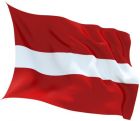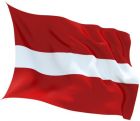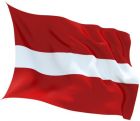| Country | Student fee |
|---|---|
Latvia 2013/14 - student fees and grants |
Students studying on state subsidised places do not pay fees. 55 % of 1st cycle students and 40 % of 2nd cycle students pay fees.
The majority of students, including those enrolled in evening courses, distance courses or courses offered jointly with other universities pay fees. Fee amounts vary by field and course load. Each higher education institution can set its own fees. The fees range from LVL 680 to 3 400 per year for full-time studies and from LVL 630 to 1 460 for part-time studies in the 1st cycle. In the 2nd cycle fees range from LVL 800 to 4 582 for full-time studies and from LVL 640 to 2 288 for part-time studies per year. For college programmes or short-cycle programmes (ISCED 5B) the fees range from LVL 550 to 900. However, some of the higher education institutions apply a diversified tuition fee amount throughout the study years, i.e. usually the fee in the first year of studies is the lowest. The amounts of fees for international students may differ in some study programmes (e.g. medicine, dentistry, engineering) and range from LVL 980 to 7 028 (2012/13) in the 1st cycle. In the 2nd cycle, fees range from LVL 1 100 to 8 434 for full-time studies and from LVL 650 to 6 470 (2012/13) for part-time studies per year. The students from EU and EEA are treated as home students. |
Latvia 2015/16 - student fees and grants | Students studying on state subsidised places do not pay fees. 63 % of 1st cycle students and 49 % of 2nd cycle students pay fees (2014/15). The majority of students, including those enrolled in evening courses, distance courses or courses offered jointly with other universities pay fees.Fee amounts vary by field and course load. Each higher education institution (HEI) can set its own fees. Fees are lower in regional HEIs and highest in the capital Riga. The fees range from EUR 1 280 to 7 000 per year for fulltime studies and from EUR 700 to 2 700 for part-time studies in the 1st cycle. In the 2nd cycle, fees range from EUR 1 080 to 8 626 for full-time studies and from EUR 880 to 12 500 for part-time studies per year. For short-cycle tertiary education or college programmes (ISCED level 5), the fees range from EUR 555 to 7 400 for full-time studies per year and EUR 570 to 2 422 for part-time studies per year. Fees in a long-cycle programmes (medicine, paediatrics, dentistry) varies from EUR 2 800 to 11 500 per year. The amounts of fees for international students may differ in some study programmes (e.g. medicine, dentistry, engineering) and are usually higher. Students from EU and EEA are treated as home students. However, fees for studying in programmes provided in the English language are usually higher than of the programmes with the Latvian language of instruction. |
Latvia 2016/17 - student fees and grants | There are two types of financial status for students: state-funded and self-financed. Students studying on state
subsidised places do not pay fees. These places are allocated on the basis of academic merit – currently available
in priority areas; natural sciences, computer sciences and engineering.
49.4 % of 1st cycle students and 38.4 % of 2nd cycle students (full-time and part-time together) are self-financing and pay fees. Almost all part-time students also pay fees. Each higher education institution (HEI) sets its own fees, tending to be lower in regional HEIs and highest in Riga. In the first cycle, annual fees range from EUR 720 to 6 403 for full-time and from EUR 800 to 2 600 for part-time studies, while in the 2nd cycle, from EUR 1 080 to 12 800 for full-time and EUR 980 to 14 500 for part-time studies. 43.6 % short-cycle tertiary or college programmes students pay fees ranging from EUR 700 to 3 800 for full-time studies per year and EUR 555 to 7 400 for part-time studies per year. Fees in programmes provided in English language are usually higher than programmes in Latvian. Fees for international students (non-EU/EEA) are higher, ranging from EUR 1 600 to 15 000. |